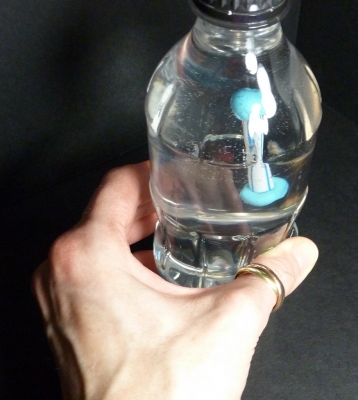Sunday 7th September
TODAY WE ARE
LEARNING ABOUT
LEARNING ABOUT
TODAY'S
KEY WORDS ARE
KEY WORDS ARE

Memory Anchor:


YOU WILL SHOW
YOUR LEARNING BY...
YOUR LEARNING BY...
Super Challenge:
Stretch:
Challenge:
Key Questions:
- What is pressure in fluids caused by?
- Pressure in fluids is caused by the collision of Particles on the surface of an object.
- What is the magnitude of the pressure in liquids equal to?
- The magnitude of the pressure in liquids is equal to the weight of water above the object.
- What happens to the pressure in liquids when depth is increased?
- The pressure in liquids increases with depth.
- What is the relationship between the upthrust force and the weight of the water?
- The size of the upthrust Force is equal to the weight of the water displaced by the object.
- To what point will an object sink to?
- An object will sink until enough water is displaced to produce an upthrust to balance it's weight.
- What causes an object to sink?
- If the weight of the object is greater than the upthrust produced the object will sink.
- What causes an object to float?
- If the weight of the object is equal to the upthrust produced the object will float.
- What is the density of water equal to?
- The density of water is 1kg/l = 1g/ml
- What effect do objects that are less dense than water have on the water?
- Objects which are less dense than water will displace a greater weight of water than they have. Therefore they will float.
- What effect do objects that are more dense than water have on water?
- Objects which are more dense than water will displace a smaller weight of water than they have. Therefore they will sink.
